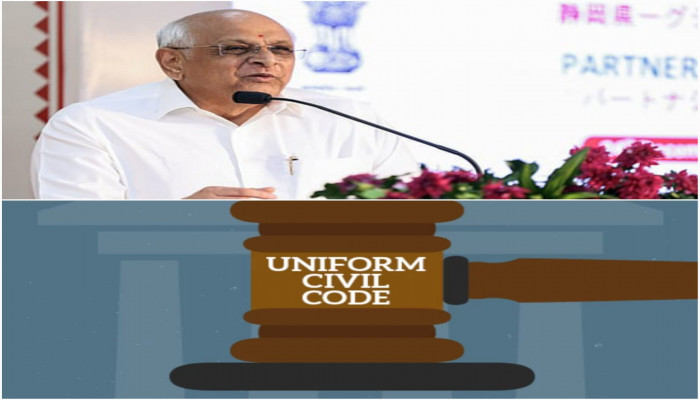Gujarat government sets up panel to draft Uniform Civil Code
- In Reports
- 05:52 PM, Feb 04, 2025
- Myind Staff
The BJP government in Gujarat has taken a significant step towards implementing the Uniform Civil Code (UCC) by forming a committee. This committee, headed by a retired Supreme Court judge, will be responsible for framing guidelines to facilitate the implementation of the UCC.
On Tuesday, Gujarat Chief Minister Bhupendra Patel announced that a five-member committee, led by retired Supreme Court judge Ranjana Desai, will present its report within 45 days.
"To assess the need for a Uniform Civil Code (UCC) and to prepare a draft bill for the same, we have decided to form a committee under the former judge of the Supreme Court," he declared.
Retired IAS officer CL Meena, advocate RC Kodekar, educationist Daxesh Thakar and social worker Gita Shroff are the other panel members.
Gujarat Home Minister Harsh Sanghavi stated that every relevant aspect will be thoroughly examined while preparing the report. "The Chief Minister has directed this committee to do detailed research on it in the next 45 days and present a report to the government," he stated.
After receiving a report from a newly formed committee, the Gujarat government will implement the Uniform Civil Code (UCC). Interestingly, Uttarakhand made history last month by becoming the first state to implement the UCC. Notably, Uttarakhand is the first BJP-ruled state to establish a UCC, following in the footsteps of Goa, which has had a UCC in place since before India gained independence.
The Uttarakhand Uniform Civil Code (UCC) applies to all state residents except for Scheduled Tribes and specific protected communities.
Under the UCC, it is mandatory to register all marriages and live-in relationships, with an option for online registration. Marriages that took place before March 26, 2010, or outside Uttarakhand can also be registered, provided they meet the legal requirements.
The law stipulates that marriages can only be conducted between mentally sound individuals, with the minimum age requirement set at 21 for men and 18 for women. It ensures equal divorce rights for both husbands and wives, regardless of their religion and grants sons and daughters equal inheritance rights across all communities.
Additionally, the UCC prohibits practices such as Halala and Iddat within the Muslim community. It also ensures that children born out of wedlock are not discriminated against in matters of property rights.
For military personnel, the code includes special provisions allowing them to create privileged wills. It also lays down a legal framework for drafting and revoking wills under the rules of testamentary succession.







Comments